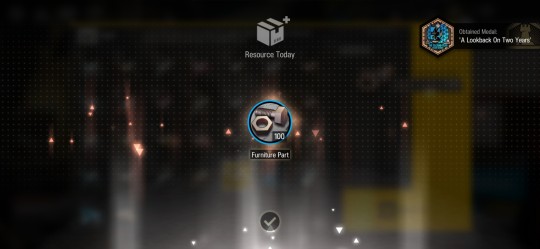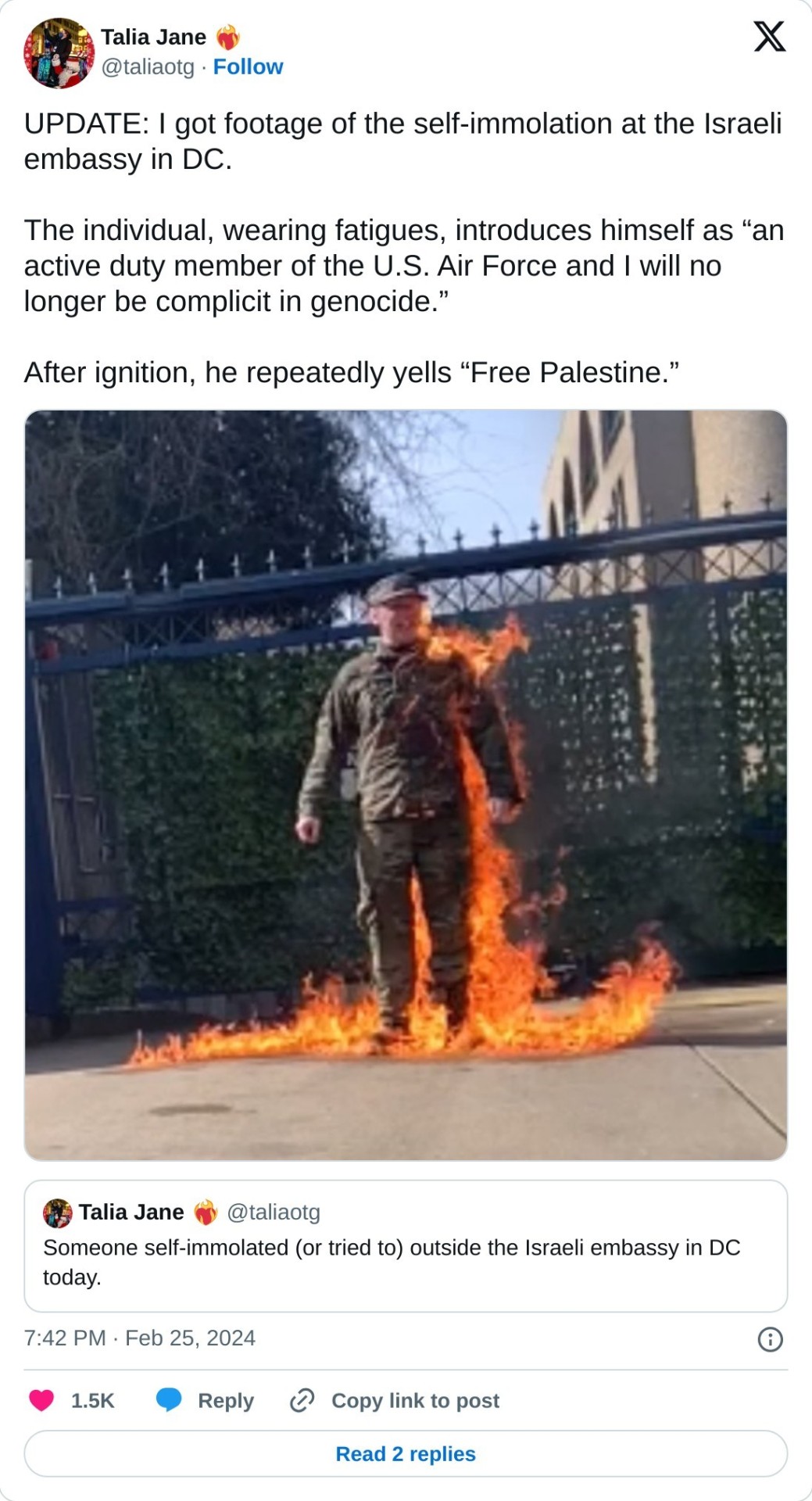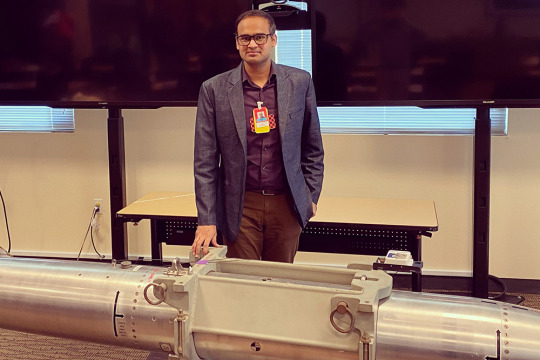#Air Force Events
Explore tagged Tumblr posts
Text
youtube
#youtube#militarytraining#usmilitary#Ohio events#Wright-Patterson Air Force Base#Wright Brothers Memorial#public gathering#aviation heritage#aviation enthusiasts#December 2024#aviation milestones#civil aviation#aerospace#first powered flight#flight celebration#Wright Brothers#Public Gatherings#Memorial Events#Aviation Legacy#Aviation Memorial#Aviation Enthusiasts#2024#Ohio History#American History#Historical Events#First Powered Flight#December 17#Air Force Events#Flight Anniversary
0 notes
Text

At rest, your lungs wish to deflate, and your ribcage expands outwards.
#better drawn mdzs#mdzs#wei wuxian#yiling laozu#Happy Friday the 13th!#This is scientific fact btw!#Ventilation operates through a series of active and passive forces#The active forces being muscular contraction with inhalation and exhalation having their own set of muscles.#but the interesting part is the passive forces at work:#The lungs have a certain level of elasticity to them - meaning the more they expand the more the those elastic forces are functioning-#-to try and return the system to rest (exhalation passive forces). Your diaphragm is the main force - pushing against the lungs at rest.#Your ribcage on the other hand is under a state of being pulled outwards. It *wants* to be as open as possible.#These to contradicting forces create a constant push and pull which assists in the ebb and flow of air. Most significantly with exhalation.#Now that being said - the primary action of inhalation ventilation is through control centers in your brainstem.#If you lose connection to that due to trauma you're going to need ventilation assistance.#Small note: Respiration is the cellular event of chemical exchange in the alveoli. Ventilation is airflow and pressure.#They are both important but also very different things. Sadly used interchangeably.#My anatomy nerd brain is screaming over the inaccurate ribcage...but its...recognizable. I will get it right one day.#Okay nerd rant over (I cut out a lot of stuff about pressure gradients. They are cool. To me.)#This is a redraw of an mspaint doodle I made back in april. I yearn to make the Yiling Laozu eerie as he deserves#Tear that bitch (affectionate) apart!#Been playing around with hatching for a while and its amazing how many styles there are! Not sure I'll stick with this one (but it was fun)
1K notes
·
View notes
Text
Writing prompt: Danny failed science and Temperature affects the weather!!!
So when a cold front meets a warm front is can cause a storm, sometimes they can become extremely dangerous….
Danny has been really stressed lately with college applications and exams, plus the fact that his powers have been getting stronger lately. So one day he flys out to the middle of nowhere and lets off some steam in the form of letting his ice core go a little crazy. He does this every now and then to help him destress, today he used a little more power than usual but no big deal right?
Wrong. One week later the justice league is at his door and confronting him about a series of severe storms that have been created that they managed to track the energy source back to him.
Now they are trying to confront him about being a weather powered meta.
To be fair he was fighting the box ghost when they were learning about hot and cold fronts, how was he supposed to know they could form tornados?
#danny phantom#ghost king danny#dc x dp#brain vomit#dp x dc#writing prompt#I don’t have time to make another one!#ice core#pay attention in science class kids#hot+cold+water=bad day#justice league#okay but imagine red tornado#forcing Danny to sit through an entire lecture#on the water cycle and how cold air can affect meteorological events#Danny is trying so hard to convince them he’s not a meta#he’s just dead
959 notes
·
View notes
Text
This past weekend, US Airman Aaron Bushnell self immolated in a self-described “Extreme act of protest” to draw attention to the ongoing atrocities committed by the Israeli Defense Force each and every day. An entire generation of Americans are seeing American complicity in this genocide first hand. Multiple generations are. We are being traumatized and radicalized in a way that no previous generation has. We watch on in horror while the American government continues to unconditionally support Benjamin Netanyahu. We watch while the media, our supposedly free media downplays and distracts from the atrocity using words like “people found dead” to describe the slaughter of Palestinian women and children. We watch in horror as Palestinians post videos of the elderly sniped from rooftops. We watch as doctors amputate fully treatable limbs, often without anesthesia. We are scared. We are horrified. We feel powerless.
My government is not powerless. Washington is full of supposedly democratically elected officials. I pray that they use their positions of power and privilege to end the violence. To work with their peers for the betterment of humanity, to start to repair the soul of a nation stained by what is perceived by many to be unconditional support of a monstrous regime. Please, how many more need to die before we work to end the suffering. We should be rebuilding schools and hospitals, not adding more fuel to the fire by allowing Israel to buy bombs and other implements of war. Bombs that we all know will cause the deaths and dismemberments of children. Palestinian children. Human children. Collateral damage or intentional slaughter, no matter your personal belief, it doesn’t matter. Children are dying.
Aaron’s sacrifice, his desperate act of protest, is forever burned into my memory. Into the collective memory of a generation. His screams echo with but a tiny fraction of the suffering caused daily, on scales that we can barely comprehend. Please use his sacrifice as the fulcrum by which we move the world.
#196#fuck authority#palestine#idf#fuck the idf#free palestine#from the river to the sea palestine will be free#peace#protest#current events#aaron bushnell#american#social justice#justice for palestine#us government#suffering#air force
195 notes
·
View notes
Text
My name is Aaron Bushnell. I am an active duty member of the United States Air Force, and I will no longer be complicit in genocide. I am about to engage in an extreme act of protest, but compared to what people have been experiencing in Palestine at the hands of their colonizers, it’s not extreme at all. This is what our ruling class has decided will be normal. Free Palestine.
Aaron Bushnell
1998-2024
#aaron bushnell#free palestine#from the river to the sea palestine will be free#current events#free gaza#gaza#us air force#genocide#demand a ceasefire#ceasefire#united states#united states air force
31 notes
·
View notes
Text
On December 17, 1969, the United States Air Force closed their "Project Blue Book" investigation of Unindentified Flying Objects. (SETI, event)

#nerds yearbook#real life event#december#1969#ufo#usaf#project blue book#air force#seti#history#alien#wright patterson air force base#edward j ruppelt#sci fi#science#unidentified flying object#u2#a12
24 notes
·
View notes
Text
me, giving my self-insert a “seems to break from the team, is actually trying to cover for them in an act of misguided self-sacrifice as the narrative addresses their fears, insecurities, and place within the crew” arc: #wish fulfillment.
#some fun tidbits:#(note: intentionally vague. if i say something like “[antagonist]” ik who that character is. i just don’t want to give the game away.)#this started with me having to figure out both how to deal with the fact that i don’t want the spades to be suddenly fully recovered after#the time-skip. like to me they’d have a harder time fully coming back from it than the straw hats even if they clearly are on the road to.#(the point of stability so to speak where it’s clear they’re on much better ground is set to be wano lol)#& also having to figure out how to work them into post ts op so that they’re on wano.#& so i had the idea to have my oc be implied from very early on to know something about a canon antagonist without reason to act on it#with any immediacy (thus also providing reason to leave it to implications)#that gets further contextualized by a plot event the crew has when they enter the new world.#this then leads to the character going after that antagonist during mf & attempting to blackmail that antagonist into helping ace escape#(this is between ace being freed by luffy & ace turning around)#which then turns into them getting manipulated into a deal with that antagonist (i’m not sure of the exact brand of emotional conflict that#would come with this just that it would be there)#anyhow- during the ts this character would be on the run before being captured & sold out by an antag from a prior arc that deals with simi#-ar themes before being handed over to the deal-antag. the deal antag is both not happy with their “end of things” not being held to#& very willing to use an awareness of the spades’ previous beef with [antag] & the stretch of their connections to be a bastard about it.#whump ensues until that part of the arc is dealt with & in their moment of emotional realization they are put in a position where they are#powerful even when being forced into impotence by protecting their crew. the crew help them along until that is dealt with#(i promise ik what happens here i have notes i just don’t want to like air it all) & when the characters are finally given a moment to#breathe there would be a scene where the resolution (for lack of a better word) of my oc’s insecurities is used to analogize the crew start#-ing to feel like they actually have a chance again rather than that they’re just clawing their way through the motions out of obligation o#care or what have you.#like it’s a whole thing lol.#ace lives au#i also have them tend to roughhouse because ace is frustrated at the character’s passive personality at first because i think i’m clever lo
3 notes
·
View notes
Text

September 24 - In the Air Force | Time in D.C.
#samtember2023#day 24 In the Air Force | Time in D.C.#sam wilson#in the air force#time in d.c.#captain america#marvel#fan event#sambucky#samsteve#samquín
16 notes
·
View notes
Text

Also: heyyyyy, it's my 2 year AKversary!
I play a lot of games, but Arknights is not only the sole phone game I've stuck with, but probably the game I've put the most hours into these past two years.
The gameplay has helped me hone my tactical skills, and now I can clear most maps without guides using my faves. The stories frequently engross me, and I still have screenshots of my fave moments on my phone. Every character is full of life and hidden depths, with half the fun being imagining how my squads interact with each other and how they live together.
Truly, it's been a wonderful game to play these past two years. I look forward to many more!
#arknights#bedlam rambles#i should draw a pic with my early main units...#angelina was my first 6* and assistant#followed by rosmontis hellagur eunectes and sutr#which led to some WILD early comps#my main caster was beeswax! i didn't have a steady anti-air sniper until Archetto released!#now I can clear entire events and get all the medals without guides...#while forcing my otp into every squad and map ahahaha
13 notes
·
View notes
Text
youtube
#youtube#militarytraining#usmilitary#Airmen ceremony#military recognition#service members#veteran recognition#RAF Lakenheath#Air Force community#Air Force events#Lakenheath events#Air Force news#Air Force families
0 notes
Text
assigning albums to danganronpa characters but i have only 3, open to suggestions i <3 music
junko enoshima - electra heart by marina
mondo oowada - wish you were here by pink floyd
nagito komaeda - ok computer by radiohead, from under the cork tree by fall out boy
#danganronpa#junko enoshima#mondo owada#mondo oowada#nagito komaeda#btw everyone listen to wish you were here pink floyd rn or else#and my criteria is that basically all/most of the songs match the characters vibe/story and such.#to go into depth. electra hearts goal of being satire and the alternating between multiple characters#and being about teenage agony and self destruction. along with just generally being more pop music with cynical themes#is very junko to me in that sense. also the general fashion and reputation of the album as a bitchy teenage girl angst album#for wish you were here. 'shine on you crazy diamond' is so ??? LIKE COME ON.#sooo many lyrics just match and the . aura of. maybe a sense of responsibility? that was forced onto you. it really makes me think of#his feelings to do with his feelings of responsibility for his brothers death and having to now take care of so many people#and his personal code of honor that puts a lot of pressure on him#for ok computer. just listen to lucky its like so on the nose like actually#'pull me out of the air crash pull me out of the lake i feel my luck could change' LIKE HELLOOOO#you can laugh.... a spineless laugh.... we hope that you choke . makes me think of him and also his murder suicide#and the way the album seems kind of surreal and abstract makes me think of his disconnect from reality and obsessive beliefs and behaviors#and the bizarre and unreal events......#hysterical and useless crushed like a bug in the ground........#fitter happier......#i wonder if id find any more. i need to listen to 8 trillion more albums#edit: just looked at the fandomwiki trivia for mondo. lmao oops. but its still right. SHGSAHGSAGHH#i didnt even know and i came to this conclusion 😭#UPDATE: added futct fob . reasoning is that the bitterness and vengefulness and mix of superiority and inferiority reminds me of#simulation era after he found out abt everyone after the . final dead room or whatever that was called#also just the . tbhhhhh to me he dresses exactly like the warped tour bands in 2005 or whatever. genuinely. so that fits as well#my post
4 notes
·
View notes
Text

04.
6 notes
·
View notes
Text
His name is Aaron Boshnell
Holy shit, an active duty American soldier set himself on fire in front of the Israeli embassy in Washington DC. Before he set himself on fire he introduced himself as "an active duty member of the U.S. Airforce I will no longer be complicit in genocide." Then repeated "free Palestine" while he was on fire. He did it while wearing his duty uniform too. There is footage of the act. I don't know how I feel about posting images of a man's self-immolation but it's such an unprecedented action to be almost unbelievable without visual evidence. Even with the several self-immolations that occurred on American soil during the Vietnam and Iraq wars, I don't think I can point to one undertaken by an active duty soldier. I will instead link to the Twitter post where it was first made public under the "more" cut below. It goes without saying that the image is graphic.

#palestine#gaza#free palestine#israel#gaza strip#genocide#free gaza#current events#ישראל#israeli army#aaron boshnell#us air force#us military#activism
32K notes
·
View notes
Text
It ain't being forced to come up the back way to the house but Lord it feels like sneaking around more than it rightly should. As I learn more and more context to everything the more sure I am of the explicit text of everything they said is all true - but specifically in reference to me. I am the one they're not wanting to be feeling that way with. I'll get to being good w all of it. I have to.
#continuation of a long line of events. who was i to think this could be any different from anything else#file this all under the same forces that made that monog cis girl have fun w me till she found someone#or the person whos got a girlfriend so everything we do has an air of me being the other woman/side piece#i can know my place
0 notes
Text
Stopping the bomb
New Post has been published on https://thedigitalinsider.com/stopping-the-bomb/
Stopping the bomb


“The question behind my doctoral research is simple,” says Kunal Singh, an MIT political science graduate student in his final year of studies. “When one country learns that another country is trying to make a nuclear weapon, what options does it have to stop the other country from achieving that goal?” While the query may be straightforward, answers are anything but, especially at a moment when some nations appear increasingly tempted by the nuclear option.
From the Middle East to India and Pakistan, and from the Korean peninsula to Taiwan, Singh has been developing a typology of counterproliferation strategies based on historical cases and to some degree on emergent events. His aim is to clarify what states can do “to stop the bomb before it is made.” Singh’s interviews with top security officials and military personnel involved in designing and executing these strategies have illuminated tense episodes in the past 75 years or so when states have jockeyed to enter the elite atomic club. His insights might upend some of the binary thinking that dominates the field of nuclear security.
“Ultimately, I’d like my work to help decision-makers predict counterproliferation strategy, and draw lessons from it on how to shield their own citizens and economies from the impact of these strategies,” he says.
Types of nonproliferation tactics
On Oct. 7, 2023, Singh awoke to air raid sirens in Jerusalem, where he was conducting interviews, and discovered Israel was under attack. He was airlifted to safety back to the United States, having borne witness to the start of a regional war that “now has become relevant to my research,” he says.
Before his hasty departure, Singh was investigating two singular episodes where military force was deployed to advance nonproliferation goals: Israel’s airstrikes against nuclear reactors in 1981 in Iraq, and in 2007 in Syria. To date, these have been the only major attacks on nuclear facilities outside of an active war.
“I spoke with Prime Minister Ehud Olmert, who ordered the strike in Syria, and with the commander of the Israeli Air Force who planned the Iraq airstrike, as well as with other members of the security bureaucracy,” says Singh. “Israel feels a large degree of threat because it is a very small country surrounded by hostile powers, so it takes a military route to stop another state from acquiring nuclear weapons,” says Singh. But, he notes, “most of the states which are not in this predicament generally resort to diplomatic methods first, and threaten violence only as a last resort.”
Singh defines the military response by Israel as “kinetic reversion,” one of five types of counterproliferation strategies he has identified. Another is “military coercion,” where a state threatens the use of military force or uses moderate force to demonstrate its commitment to preventing the pursuit of the bomb. States can also use diplomatic and economic leverage over the proliferant to persuade it to drop its nuclear program, what Singh calls “diplomatic inhibition.”
One form this strategy takes is when one country agrees to give up its program in return for the other doing the same. Another form involves “placing sanctions on a country and excluding them from the world economy, until the country rolls back its program — a strategy the U.S. has employed against Iran, North Korea, Libya, and Pakistan,” says Singh.
India was rumored to have embraced military tactics. “I had always read about the claim that India was ready to attack the Pakistani uranium enrichment plant in Kahuta, and that planes were called off at the last minute,” Singh says. “But in interview after interview I found this was not the case, and I discovered that many written accounts of this episode had been completely blown up.”
In another strategy, “pooled prevention,” nations can band together to apply economic, diplomatic, and military pressure on a potential proliferator.
Singh notes that diplomatic inhibition, pooled prevention, and military coercion have succeeded, historically. “In 2003, Libya gave up its nuclear weapons program completely after the U.S. and U.K. placed sanctions on it, and many states do not even start a nuclear weapons program because they anticipate an attack or a sanction.”
The final strategy Singh defines is “accommodation,” where one or more states decide not to take action against nuclear weapon development. The United States arrived at this strategy when China began its nuclear program — after first considering and rejecting military attacks.
Singh hopes that his five kinds of strategies challenge a “binary trap” that most academics in the field fall into. “They think of counterproliferation either as military attack or no military attack, economic sanctions or no sanctions, and so they miss out on the spectrum of behaviors, and how fluid they can be.”
From journalism to security studies
Singh grew up in Varanasi, a Hindu holy city in the state of Uttar Pradesh. Frequent terrorist attacks throughout India, and some inside his city’s temples, made a deep impression on him during his childhood, he says. A math and science talent, he attended the Indian Institute of Technology, majoring in metallurgical and materials engineering. After a brief stint with a management consulting firm, after college, he landed a job at a think tank, the Center for Policy Research in New Delhi.
“When I moved to New Delhi, I suddenly saw a world which I didn’t know existed,” Singh recalls. “I began meeting people for an evening round of discussions and began reading voraciously: books, editorial and opinion pages in newspapers, and looking for a greater sense of purpose and meaning in my work.”
His widening interests led to a job as staff writer, first at Mint, a business newspaper, and then to the Hindustan Times, working on both papers’ editorial pages. “This was where most of my intellectual development happened,” says Singh. “I made social connections, and many of them grew more towards the academics in the security field.”
Writing about a nuclear security question one day, Singh reached out to an expert in the United States: Vipin Narang, the Frank Stanton Professor of Nuclear Security and Political Science at MIT. Over time, Narang helped Singh realize that the kind of questions Singh hoped to answer “lay more in the academic than in the journalistic domain,” recounts Singh.
In 2019, he headed to MIT and began a doctoral program focused on security studies and international relations. In his dissertation, “Nipping the Atom in the Bud: Strategies of Counterproliferation and How States Choose Among Them,” Singh hopes to move beyond a classic, academic debate: that nuclear weapons are either very destabilizing, or very stabilizing.
“Some argue that there is stability in the world because two states armed with nuclear weapons will avoid nuclear war, because they understand nobody will win a nuclear war,” explains Singh. “If this view is true, then we shouldn’t be alarmed by the proliferation of these weapons.” But “the counterargument is that there will always be an off chance someone will use these weapons, and so states should “try to use all their military and economic might to prevent another state from gaining nuclear weapons.”
As it turns out, neither extreme view governs in the real world. “The main takeaway from my research is that states are obviously concerned when some other country tries to make nuclear weapons, but they are not so concerned that in order to prevent a future destabilizing event, they are ready to destabilize the world as of now.”
In the final throes of writing his thesis and preparing for life as an academic, Singh remains alert to the parlous state of affairs in the Middle East and elsewhere. “I keep following events, knowing that something may prove relevant to my research,” he says.
Given the tense times and the often dark implications of his subject matter, Singh has found an optimal mode of blowing off steam: a daily badminton match. He and his wife also “binge watch either a spy thrill or a murder mystery every Saturday,” he says.
In a world both increasingly interconnected and increasingly threatened by regional conflicts, Singh believes, “there is still much to be discovered about how the world thinks about nuclear weapons, including what the impacts of nuclear weapons use might be,” he says. “I’d like to help shine a light on those new things, and broaden our understanding of nuclear weapons and the politics of nuclear security.”
#2023#Accounts#air#air force#atom#atomic#binary#Books#Business#challenge#China#college#consulting#Dark#decision-makers#development#economic#economic sanctions#economy#editorial#employed#engineering#event#Events#Facilities#form#Future#Graduate#postdoctoral#how
0 notes
Text
Japanese War Crimes and Atrocities during World War II
Subscriber Content Add content here that will only be visible to your subscribers. Payment
#1930s#1940s#Atrocities#Death#event & history#History Daily#Japanese Air Force#Japanese Army#Japanese Imperial Family#Japanese Navy#murder#Prisoner of War#World War II
0 notes